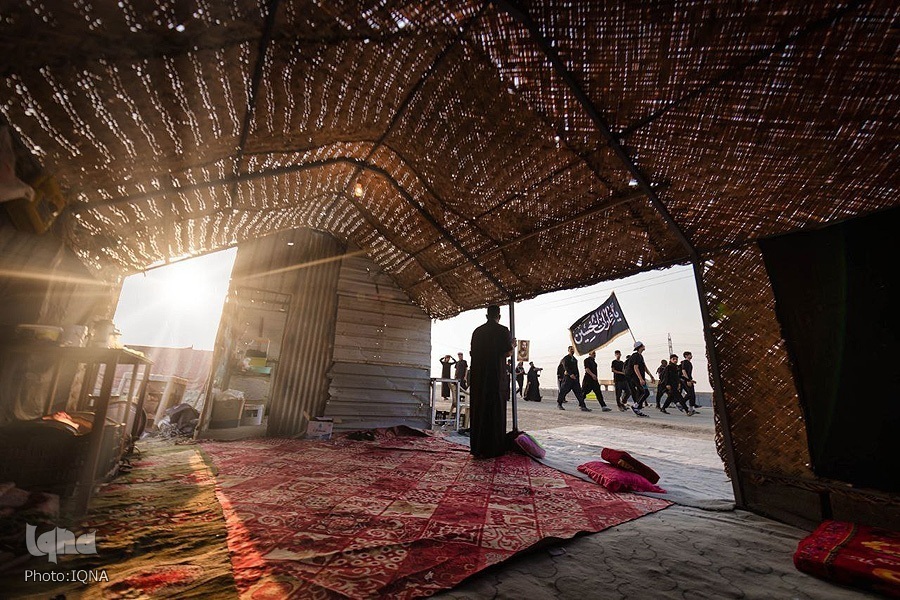Arbaeen Procession Full of Invisible, Transformational Stories: Scholar

In remarks highlighting the emotional and dramatic depth of the Arbaeen pilgrimage, university and seminary lecturer Hojat-ol-Islam Mohammad Hassan Nabavi described the event as a powerful reservoir of untold human stories waiting to be explored and shared with the world.
“The Arbaeen walk is full of hidden and invisible stories within the hearts of people who, with the barest means, embark on this path driven by spiritual motivation and an endless love for Imam Hussein (AS),” Nabavi told IQNA.
Each year, millions of pilgrims—many on foot—journey to the Iraqi city of Karbala to mark Arbaeen, the 40th day after the martyrdom of Imam Hussein (AS), the grandson of Prophet Muhammad (PBUH), in the 7th-century Battle of Karbala.
The walk, often beginning in cities such as Najaf, Basra, or even as far as Iran or Pakistan, stretches hundreds of kilometers and is considered one of the largest peaceful gatherings in the world.
Read More:
Nabavi emphasized that the stories that emerge from this journey—of selflessness, repentance, spiritual awakening, and rediscovery of one’s humanity—are deeply cinematic and universally relatable.
“Someone might walk thousands of kilometers and find their life transformed on the way. That moment of change, that turning point, is the essence of drama,” he noted.
He pointed out that no other walk in the world matches the scale and intensity of Arbaeen. “The diversity of pilgrims—different nationalities, ethnicities, and backgrounds—creates a rich tapestry of human interaction. A camera could follow just one pilgrim from Ahvaz to Karbala, encountering countless unique stories along the way,” he suggested.
Read More:
Describing the event as a “spiritual drill,” Nabavi praised the pilgrims' willingness to abandon comfort for devotion. “They leave behind air conditioning and comfort. Their feet blister, yet they keep walking. It is a living embodiment of the prayer ‘Ya Laytana Kunna Ma’ak’—a wish to have stood beside Imam Hussein (AS),” he said.
Nabavi argued that when these values—truth, sincerity, sacrifice—are portrayed through character-driven narratives, they can inspire global audiences. “Even ordinary people reveal extraordinary virtues during Arbaeen. They cook for strangers, offer shelter, serve with purity of heart. These are the true protagonists of powerful stories.”
He also underlined Arbaeen’s counter-narrative to the modern media landscape dominated by self-interest, division, and violence. “In a world consumed by greed and selfishness, Arbaeen offers a narrative of love, self-sacrifice, and brotherhood. If we tell these stories well, the world will listen and learn,” he urged.
Read More:
According to Nabavi, many pilgrims carry personal pain or grief when joining the walk—some mourning a loss, others seeking healing or meaning. “This is not just a physical walk—it’s an inner journey. Along the road, people confront themselves, their pasts, their regrets. Some find a peace they’ve been missing for years.”
“If captured with sensitivity and realism,” Nabavi concluded, “these journeys through the heart—not just across roads—can become some of the most profound human stories ever told.”
4297624



